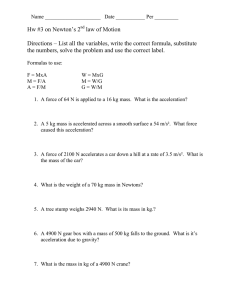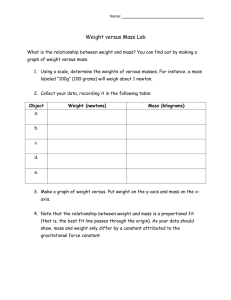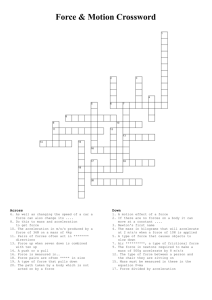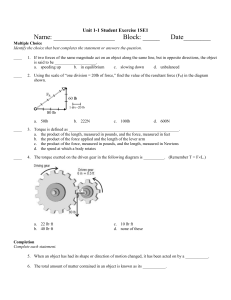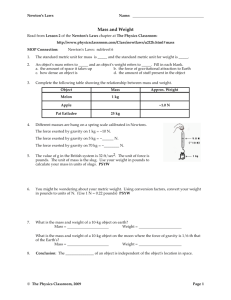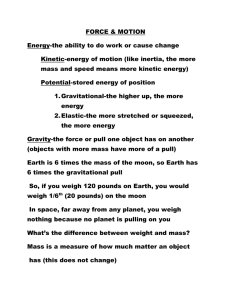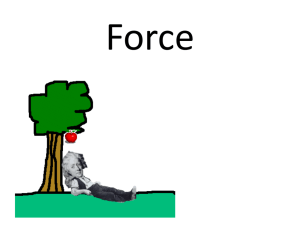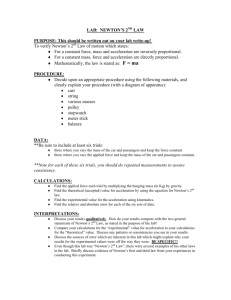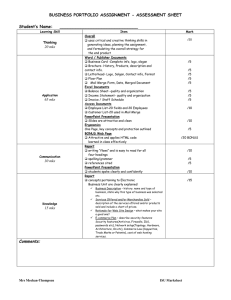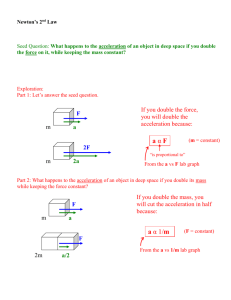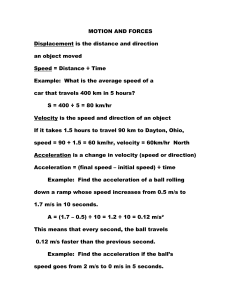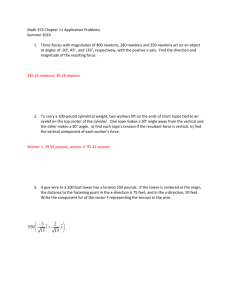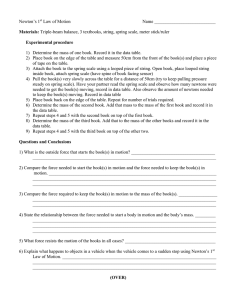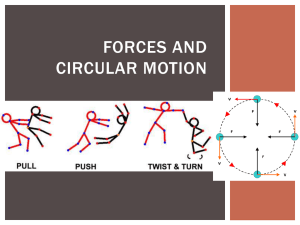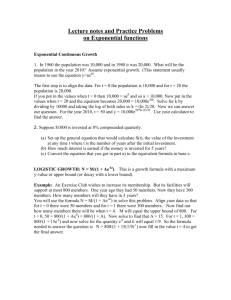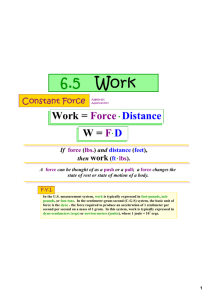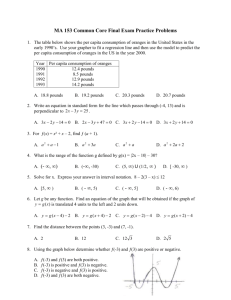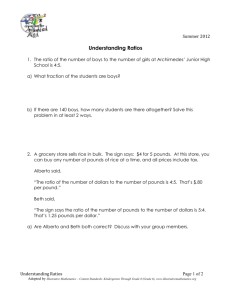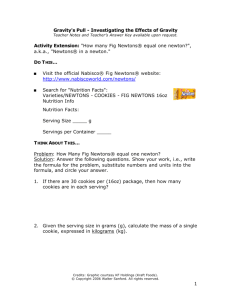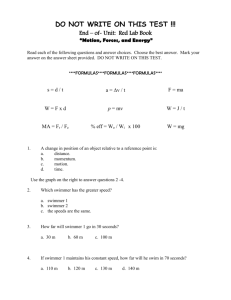ReadMeFirst - Worcester Polytechnic Institute
advertisement
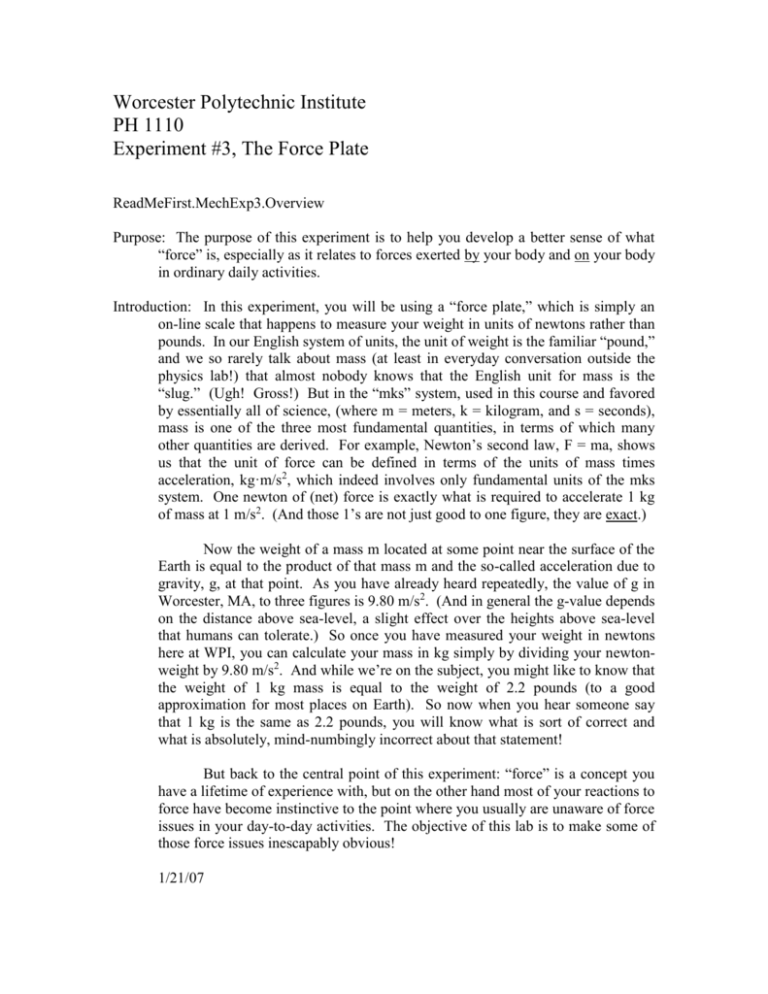
Worcester Polytechnic Institute PH 1110 Experiment #3, The Force Plate ReadMeFirst.MechExp3.Overview Purpose: The purpose of this experiment is to help you develop a better sense of what “force” is, especially as it relates to forces exerted by your body and on your body in ordinary daily activities. Introduction: In this experiment, you will be using a “force plate,” which is simply an on-line scale that happens to measure your weight in units of newtons rather than pounds. In our English system of units, the unit of weight is the familiar “pound,” and we so rarely talk about mass (at least in everyday conversation outside the physics lab!) that almost nobody knows that the English unit for mass is the “slug.” (Ugh! Gross!) But in the “mks” system, used in this course and favored by essentially all of science, (where m = meters, k = kilogram, and s = seconds), mass is one of the three most fundamental quantities, in terms of which many other quantities are derived. For example, Newton’s second law, F = ma, shows us that the unit of force can be defined in terms of the units of mass times acceleration, kg·m/s2, which indeed involves only fundamental units of the mks system. One newton of (net) force is exactly what is required to accelerate 1 kg of mass at 1 m/s2. (And those 1’s are not just good to one figure, they are exact.) Now the weight of a mass m located at some point near the surface of the Earth is equal to the product of that mass m and the so-called acceleration due to gravity, g, at that point. As you have already heard repeatedly, the value of g in Worcester, MA, to three figures is 9.80 m/s2. (And in general the g-value depends on the distance above sea-level, a slight effect over the heights above sea-level that humans can tolerate.) So once you have measured your weight in newtons here at WPI, you can calculate your mass in kg simply by dividing your newtonweight by 9.80 m/s2. And while we’re on the subject, you might like to know that the weight of 1 kg mass is equal to the weight of 2.2 pounds (to a good approximation for most places on Earth). So now when you hear someone say that 1 kg is the same as 2.2 pounds, you will know what is sort of correct and what is absolutely, mind-numbingly incorrect about that statement! But back to the central point of this experiment: “force” is a concept you have a lifetime of experience with, but on the other hand most of your reactions to force have become instinctive to the point where you usually are unaware of force issues in your day-to-day activities. The objective of this lab is to make some of those force issues inescapably obvious! 1/21/07
